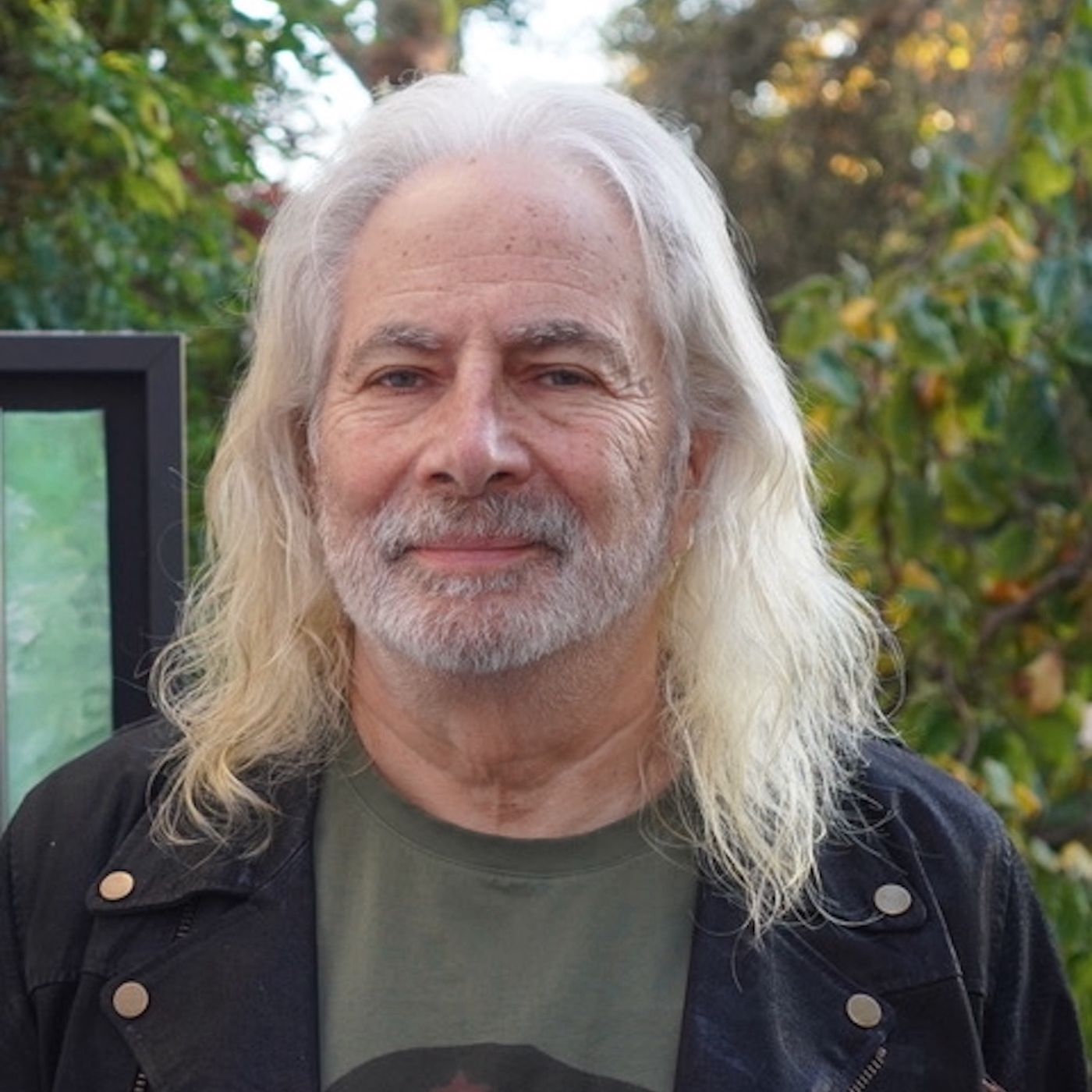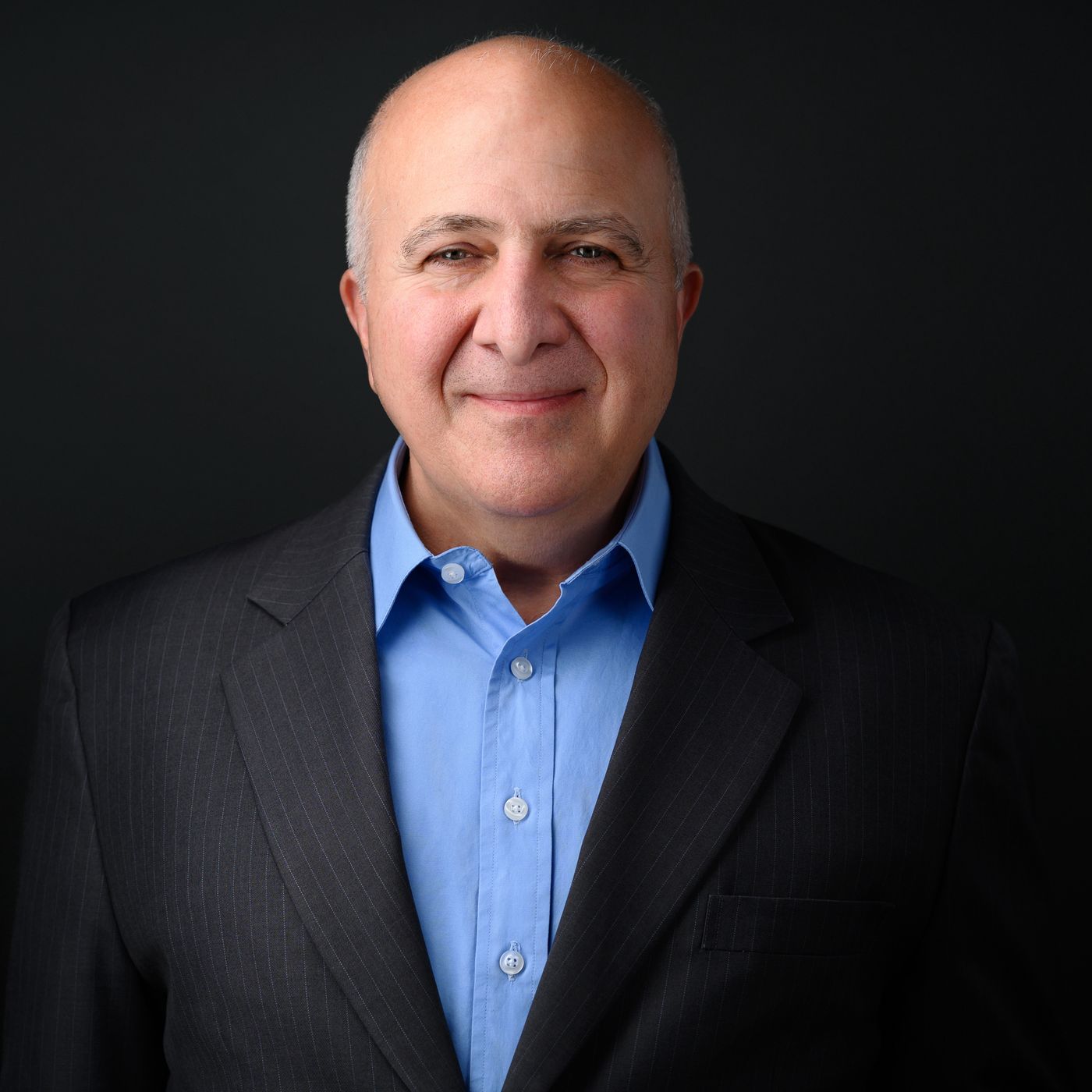Healthcare seems to be getting more and more complicated. In fact, sometimes it’s as though we, as patients, must do our own research to make sure what our doctor is recommending is the right approach. Should that be? Do we have the tools to do that?
We’re going to talk about that with Harry Glorikian, a global business expert, healthcare entrepreneur, podcaster and author. Glorikian is a General Partner at Scientia Ventures, which invests in tech companies involved in healthcare. The company works with entrepreneurs with big ideas to build companies with the potential of transforming healthcare.
Besides that Glorikian is on the boards of StageZero Life Sciences, a publicly traded healthcare technology business dedicated to the early detection of cancer and multiple disease states through whole blood, and Drumroll Health, which develops AI technologies to foster closer partnerships between patients, healthcare professionals and healthcare companies.
On his podcast, The Harry Glorikian Show, he speaks with leaders in the healthcare and life sciences industry about the ongoing data-driven transformation of their industry.
“From new ways to diagnose & treat patients, bring down costs & creating new value, all the way to AI algorithms that increase efficiency & accuracy, better data is revolutionizing healthcare,” Glorikian says.
He holds an MBA from Boston University and a bachelor’s degree from San Francisco State University.
He is the author of a new book "The Future You: How Artificial Intelligence Can Help You Get Healthier, Stress Less, and Live Longer." We are going to talk about that today.
Welcome, Harry, to the Lean to the Left podcast.
Q. Let’s start with a big question: How is technology changing everything we know about healthcare today? Do you have an elevator speech type response for that one?
Q. Most people like to think they can rely on their doctor to guide them through whatever their ailment might be, serious or not. Is that true? Can they really do that?
Q. You did an episode about E-Patient Dave, a patient who had a brush with cancer and ended up doing his own research to find the medication that ultimately saved his life. It was in the late 2000s and the healthcare system was unprepared to help patients like him who wanted to access and understand their own information. Has that changed?
Q. So that means that for many people, it’s on us to find the best solution to our medical problems?
Q. You say that new technologies and standards have the potential to open up a new era of participatory medicine – if patients are willing to do a little more work to understand their health data, if innovators can get better access to that data, and if doctors are willing to create a partnership with the patients over the process of diagnosis and treatment. That sounds like a lot.
Q. Shouldn’t we as patients be able to count on our healthcare providers to find the right answer? Why should we have to do our own research and wade into data?
Q. Is all of this addressed in your book?
Q. Also, I see you and a co-author previously did a book called Moneyball Medicine.” Great title. What’s that about?
Q. In Moneyball, you map out many of the changes taking place, their impact, and outline some predictions in healthcare for the future. What are some of those predictions?
Q. I have a smart watch and it can measure my heart rate, do an ECG, track my cycle if I was a woman, and even tell me when to pause to breath. Is this stuff really useful?
Q. New drugs, of course, are a critical component of our healthcare system, and there was a big fight on Capitol Hill that culminated in legislation allowing Medicare to negotiate drug prices with the pharmaceutical companies. They complained, of course, that this would impede research – their constant argument. What’s your take on this?
Website(s): glorikian.com
Instagram:...
We’re going to talk about that with Harry Glorikian, a global business expert, healthcare entrepreneur, podcaster and author. Glorikian is a General Partner at Scientia Ventures, which invests in tech companies involved in healthcare. The company works with entrepreneurs with big ideas to build companies with the potential of transforming healthcare.
Besides that Glorikian is on the boards of StageZero Life Sciences, a publicly traded healthcare technology business dedicated to the early detection of cancer and multiple disease states through whole blood, and Drumroll Health, which develops AI technologies to foster closer partnerships between patients, healthcare professionals and healthcare companies.
On his podcast, The Harry Glorikian Show, he speaks with leaders in the healthcare and life sciences industry about the ongoing data-driven transformation of their industry.
“From new ways to diagnose & treat patients, bring down costs & creating new value, all the way to AI algorithms that increase efficiency & accuracy, better data is revolutionizing healthcare,” Glorikian says.
He holds an MBA from Boston University and a bachelor’s degree from San Francisco State University.
He is the author of a new book "The Future You: How Artificial Intelligence Can Help You Get Healthier, Stress Less, and Live Longer." We are going to talk about that today.
Welcome, Harry, to the Lean to the Left podcast.
Q. Let’s start with a big question: How is technology changing everything we know about healthcare today? Do you have an elevator speech type response for that one?
Q. Most people like to think they can rely on their doctor to guide them through whatever their ailment might be, serious or not. Is that true? Can they really do that?
Q. You did an episode about E-Patient Dave, a patient who had a brush with cancer and ended up doing his own research to find the medication that ultimately saved his life. It was in the late 2000s and the healthcare system was unprepared to help patients like him who wanted to access and understand their own information. Has that changed?
Q. So that means that for many people, it’s on us to find the best solution to our medical problems?
Q. You say that new technologies and standards have the potential to open up a new era of participatory medicine – if patients are willing to do a little more work to understand their health data, if innovators can get better access to that data, and if doctors are willing to create a partnership with the patients over the process of diagnosis and treatment. That sounds like a lot.
Q. Shouldn’t we as patients be able to count on our healthcare providers to find the right answer? Why should we have to do our own research and wade into data?
Q. Is all of this addressed in your book?
Q. Also, I see you and a co-author previously did a book called Moneyball Medicine.” Great title. What’s that about?
Q. In Moneyball, you map out many of the changes taking place, their impact, and outline some predictions in healthcare for the future. What are some of those predictions?
Q. I have a smart watch and it can measure my heart rate, do an ECG, track my cycle if I was a woman, and even tell me when to pause to breath. Is this stuff really useful?
Q. New drugs, of course, are a critical component of our healthcare system, and there was a big fight on Capitol Hill that culminated in legislation allowing Medicare to negotiate drug prices with the pharmaceutical companies. They complained, of course, that this would impede research – their constant argument. What’s your take on this?
Website(s): glorikian.com
Instagram:...
Show Notes
Healthcare seems to be getting more and more complicated. In fact, sometimes it’s as though we, as patients, must do our own research to make sure what our doctor is recommending is the right approach. Should that be? Do we have the tools to do that?
We’re going to talk about that with Harry Glorikian, a global business expert, healthcare entrepreneur, podcaster and author. Glorikian is a General Partner at Scientia Ventures, which invests in tech companies involved in healthcare. The company works with entrepreneurs with big ideas to build companies with the potential of transforming healthcare.
Besides that Glorikian is on the boards of StageZero Life Sciences, a publicly traded healthcare technology business dedicated to the early detection of cancer and multiple disease states through whole blood, and Drumroll Health, which develops AI technologies to foster closer partnerships between patients, healthcare professionals and healthcare companies.
On his podcast, The Harry Glorikian Show, he speaks with leaders in the healthcare and life sciences industry about the ongoing data-driven transformation of their industry.
“From new ways to diagnose & treat patients, bring down costs & creating new value, all the way to AI algorithms that increase efficiency & accuracy, better data is revolutionizing healthcare,” Glorikian says.
He holds an MBA from Boston University and a bachelor’s degree from San Francisco State University.
He is the author of a new book "The Future You: How Artificial Intelligence Can Help You Get Healthier, Stress Less, and Live Longer." We are going to talk about that today.
Welcome, Harry, to the Lean to the Left podcast.
Q. Let’s start with a big question: How is technology changing everything we know about healthcare today? Do you have an elevator speech type response for that one?
Q. Most people like to think they can rely on their doctor to guide them through whatever their ailment might be, serious or not. Is that true? Can they really do that?
Q. You did an episode about E-Patient Dave, a patient who had a brush with cancer and ended up doing his own research to find the medication that ultimately saved his life. It was in the late 2000s and the healthcare system was unprepared to help patients like him who wanted to access and understand their own information. Has that changed?
Q. So that means that for many people, it’s on us to find the best solution to our medical problems?
Q. You say that new technologies and standards have the potential to open up a new era of participatory medicine – if patients are willing to do a little more work to understand their health data, if innovators can get better access to that data, and if doctors are willing to create a partnership with the patients over the process of diagnosis and treatment. That sounds like a lot.
Q. Shouldn’t we as patients be able to count on our healthcare providers to find the right answer? Why should we have to do our own research and wade into data?
Q. Is all of this addressed in your book?
Q. Also, I see you and a co-author previously did a book called Moneyball Medicine.” Great title. What’s that about?
Q. In Moneyball, you map out many of the changes taking place, their impact, and outline some predictions in healthcare for the future. What are some of those predictions?
Q. I have a smart watch and it can measure my heart rate, do an ECG, track my cycle if I was a woman, and even tell me when to pause to breath. Is this stuff really useful?
Q. New drugs, of course, are a critical component of our healthcare system, and there was a big fight on Capitol Hill that culminated in legislation allowing Medicare to negotiate drug prices with the pharmaceutical companies. They complained, of course, that this would impede research – their constant argument. What’s your take on this?
Website(s): glorikian.com
Instagram: harryglorikian
Twitter: @HGlorikian
Listen On
Also In Season 2
-

David Wann-Disarming Weapons of Mass Distraction
At a basic level, are humans chasing wants but neglecting essential needs like h -

Jack Kerfoot-Good News on Global Warming
The International Energy Agency has reported that the world will add as much ren -

Josh Malkin-Battling Book Bans
In dozens of states across the nation efforts are underway to influence, even in -

Fighting Times, Organizing on the Front Lines
It’s hard to believe that in this day and age unions representing freight rail w


Comments & Upvotes